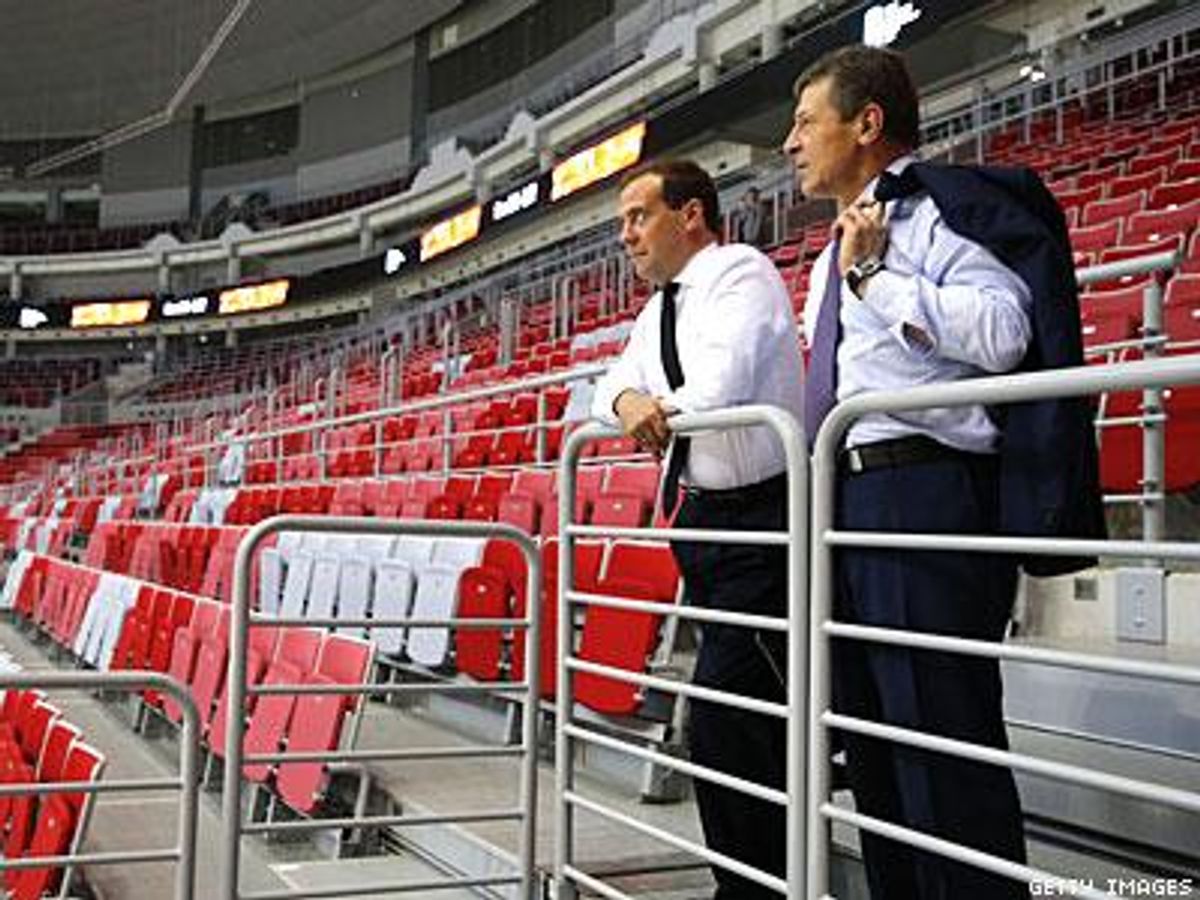A high-ranking Russian official offered the latest today in a series of "assurances" to the International Olympic Committee that LGBT athletes and spectators will be safe at the 2014 Winter Games in Sochi, Russia, despite the nation's harsh ban on "propaganda of nontraditional sexual relations."
Deputy Prime Minister Dmitry Kozak signed the letter promising the IOC that Russia will respect the nondiscrimination clauses of the Olympic Charter, while simultaneously defending the national anti-LGBT law that imposes fines and possible jail time for anyone discussing LGBT identities in a format that might be visible to minors.
"The Russian Federation guarantees the fulfillment of its obligations before the International Olympic Committee in its entirety," Kozak said in the statement, reported by the Associated Press.
But the deputy prime minister went on to reaffirm that the anti-LGBT law applies "equally to all persons, irrespective of their race, religion, gender, or sexual orientation, and cannot be regarded as discrimination based on sexual orientation."
The letter made clear that the law does not have an impact on the "legal right of residence in the territory of the Russian Federation, or participation in any events stipulated in the Games program" for Olympic athletes and visitors.
The IOC lauded Kozak's letter, saying it provided "strong written reassurances from the Russian government that everyone will be welcome at the games in Sochi regardless of their sexual orientation," according to a statement from IOC president Jacques Rogge.
But whether LGBT athletes and spectators would be permitted to participate in the 2014 Winter Games was never in question. Rather, what remains unconfirmed is whether athletes and spectators who express support for LGBT communities by holding hands, kissing, or wearing or waving a rainbow flag could be in violation of the broadly defined law.
Last week the head of Russia's National Olympic Committee essentially proposed a "don't ask, don't tell" policy for the Sochi Olympics. "If a person does not put across his views in the presence of children, no measures against him can be taken," Alexander Zhukov told Russian news outlet RIA Novosti. "People of nontraditional sexual orientations can take part in the competitions and all other events at the games unhindered, without any fear for their safety whatsoever."


















































































